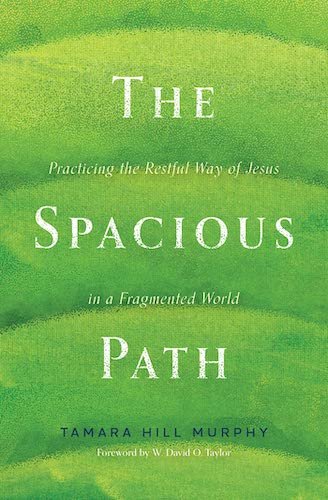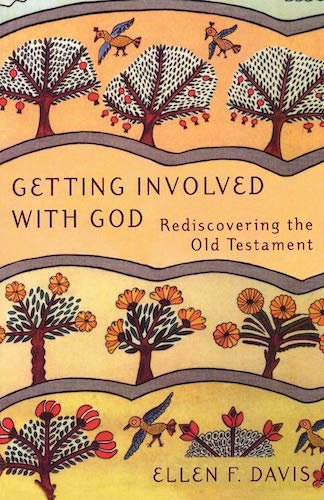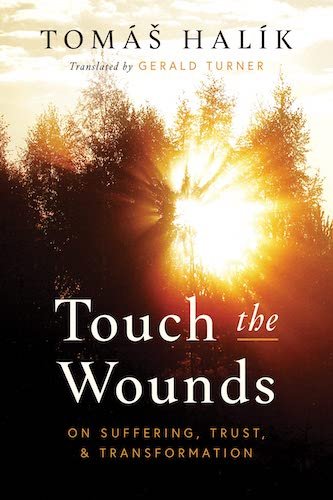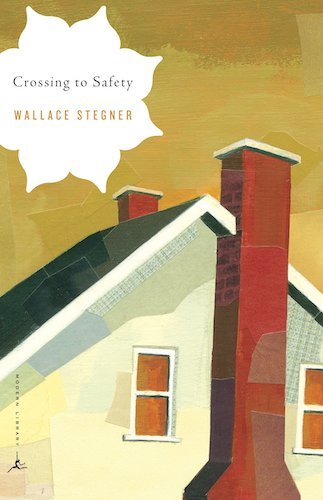My Favorite Books of 2023
As I recently wrote, for us 2023 was a year of disorientation and sadness and pain, but it was also a year of very good gifts. And so, without having exactly planned it this way, it seems right that in putting together this list of favorite books from the year, my selections have come to reflect both extremes.
We read books, you and I, for all kinds of reasons: to be entertained or inspired or challenged or edified. We read, sometimes, to escape. Or to impress. Some of us read books for self-improvement or self-mastery. Some readers are just really into vampires and zombies, I guess.
I know that in many cases when I reach for a book, I’m actually looking for a friend. Often, we never get past the acquaintance stage, these authors and us. But other times, when we’re lucky, something resembling friendship is exactly what we find. Can you relate to that?
What follows are 15 wonderful books by authors who came to feel like companions amidst the beautiful, terrible stuff of everyday life in 2023. Included are works of poetry, memoir, essays, theology, biography, history, and fiction. They are listed in no particular order, except that I’ve saved my favorite book of the year for last.
When you’re done reading, I’d love to hear from you. Have you read any of the books I highlight here? Love ‘em? Hate ‘em? Which books are you dying to tell me about as I create my reading plan for 2024?
Don’t be a stranger, whatever you do. And as always, thanks for reading.
– Tim
An enduring classic in a newish translation:
Confessions (Modern Library)
by Augustine, translated by Sarah Ruden
Last year I re-read a number of books that, one way or another, would have to be considered all-time favorites of mine, from authors like Annie Dillard, Valeria Luiselli, and Christian Wiman. I didn’t include any of them here, simply because I want to use this space to highlight new discoveries. The one exception is Sarah Ruden’s recent translation of Augustine’s Confessions.
Reading this fresh translation, I found myself discovering new passages as if for the first time. I was especially enthralled by Book 10, where Augustine reflects on the possibilities of knowledge (of self and of God) as well as the mystery of memory: “What we do is take the things memory holds in random and arbitrary arrangements and bind them together, as it were, by thinking about them, and care for them by paying attention to them.”
Read more here.
A memoir of resilience and hope:
Solito: A Memoir (Hogarth)
by Javier Zamora
A first-hand account of making the arduous journey without family from El Salvador to the United States at the age of nine, this was a buzzy book when it came out in the fall of 2022. I picked up a copy at Zamora’s reading at Changing Hands in Phoenix (he signed it to me with “abrazos centroamericanos”). But for some odd and surely inexcusable reason I didn’t get around to reading it until the spring. It lives up to the hype. Zamora, who previously published a book of poetry, is a marvelous writer with a heartbreaking yet hopeful story to tell.
A book that helps us live in the present, in light of the past:
Begin Again: James Baldwin's America and Its Urgent Lessons for Our Own (Crown)
by Eddie S. Glaude Jr.
This was the first book I read last January, and while I never wrote about it here, it has had tremendous staying power in my heart and mind. In these pages Glaude explores the life, work, and legacy of James Baldwin—one of the finest, most incisive American writers of the twentieth century—and considers what he has to teach us today. There are so many poignant excerpts I could share, but this insight from Glaude about trauma and memory in Baldwin’s writing is the passage I’ve been unable to shake.
“Narrating trauma fragments how we remember. We recall what we can and what we desperately need to keep ourselves together. Wounds, historical and painfully present, threaten to rend the soul, and if that happens, nothing else matters. Telling the story of trauma in fits and starts isn’t history in any formal sense. It is the way traumatic memory works: recollections caught in ‘the pitched battle between remembering and forgetting.’ Facts bungled on behalf of much-needed truths. We try to keep our heads above water and tell ourselves a story that keeps our legs and arms moving below the surface.”
A short work of theology that puts a bull’s eye on the resurrection:
Christianity’s Surprise: A Sure and Certain Hope (Abingdon)
by C. Kavin Rowe
This one packs a punch. In less than 100 pages, Rowe points to the resurrection of Jesus as the singular earth-shaking reality that defines and shapes Christian faith. The resurrection not only explains the “surprising” rise of the early church but also animates any hope-filled Christian witness today. I read this during Eastertide and am so glad I did.
Read more here.
An anthology of poems worth savoring:
A Century of Poetry: 100 Poems for Searching the Heart (SPCK)
by Rowan Williams
I was grateful for the opportunity last January to meet Rowan Williams and to hear him give a couple of lectures on Augustine. I went on to read a few of his books throughout the year, and he is perhaps the author I most have in mind when I think of my literary “companions” for 2023. I could easily have included Silence and Honey Cakes here, or his own book on the resurrection, but instead I’m commending to you this collection of 100 poems from (roughly) the past 100 years. Besides being a rich, stimulating collection from a wide variety of poets, the reflections by Williams on each of these poems are what really set this book apart. This is someone who has clearly steeped himself in poetry, paying attention to poems over many years and letting them do their slow, mysterious work on him.
Read more here.
A novel about a pastoral search committee, with recipes:
Search: A Novel (Penguin)
by Michelle Huneven
I have friends who have served on search committees at churches looking for new pastors and priests. I thought of those friends and those churches as I read this entertaining, original, and sneakily substantive novel. I’ve told a few of these friends about Search, but always a little cautiously; I can’t decide if I think they’d find it cathartic—or retraumatizing.
Search is written from the perspective of Dana, a food critic and author who gets tapped to join the search committee at her Unitarian Universalist church in California. Her Sunday attendance is spotty and she’s reluctant to be part of the process, for all the understandable reasons. But ultimately she decides to make the most of it by surreptitiously writing a book about the wild characters who constitute the committee. Let’s just say no two people in the room can agree on anything. Some candidates are deemed too male. Some are too inexperienced or too old. Some, God forbid, are too religious. (Remember, these are Unitarian Universalists we’re talking about.)
I didn’t read a lot of funny books in 2023, but this one made me laugh. It also made me hungry. For all their pettiness, as well as the bureaucratic frustrations to which they are subjected, the committee members eat and drink well. And Dana is there to capture all of it in vivid detail.
A gentle invitation to adopt a rule of life:
The Spacious Path: Practicing the Restful Way of Jesus in a Fragmented World (Herald)
by Tamara Hill Murphy
For some of us, quite understandably, the word “rule” has a tendency to set off alarm bells—especially when applied to the spiritual life. Maybe it gives off a whiff of legalism. Or maybe we’ve been in churches where leaders (whether they mean to or not) weigh us down with burdens too heavy to bear.
Fortunately, this book is neither legalistic nor burdensome. The spiritual practices Murphy invites us to cultivate are, in fact, gifts that can free us from much of what entangles, like anxiety, dis-integration, and godless perfectionism. A Rule of Life is a paradox, much like the “easy” and “light” yoke of Jesus. And it’s a gift not just for ourselves, but for those around us. It is, as Benedict himself put it, a “little discipline to safeguard love.”
Read more here.
A posthumous essay collection:
Embrace Fearlessly the Burning World: Essays (Random House)
by Barry Lopez
Lopez’s recurring preoccupation in these essays—with paying attention and being patient—remind me a bit of Wendell Berry’s body of work. And his focus on “what the body knows,” calls to mind the groundbreaking work of Bessel van der Kolk—especially in the passages where Lopez writes about the unspeakable traumas he endured as a boy. Taken together, these emphases form the basis of what others have called his “priestly” vision.
At various points in this collection, Lopez refers to the Sixth Extinction. As he writes of the frightening realities facing our “burning world,” however, it’s to his credit that he never does so flippantly, and he’s careful when it comes to casting blame. Lopez seems to understand that to love the world and to be invested in its future doesn’t always mean leaving it untouched. Nor, to be sure, does it mean endlessly consuming without regard for limits and consequences. Lopez inhabits the vast space between the two extremes, and in this book he invites us to join him there.
Read more here.
A hefty, substantive new biography:
King: A Life (Farrar, Straus and Giroux)
by Jonathan Eig
There is no dearth of writing on the life of MLK. Besides his own books and posthumous collections of speeches and sermons, for as long as any of us can remember we have had biographies, documentaries, and feature films that help us understand the man behind the myth, from a variety of vantage points.
So maybe, upon seeing this hefty new biography on the front table at the local indie bookstore, your reaction was a bit like mine: Do we really need a new MLK biography? I mean, what more needs to be said? A lot more, it turns out.
Read more here.
A scholar invites us to read the Bible with new eyes:
Getting Involved with God: Rediscovering the Old Testament (Cowley)
by Ellen Davis
When Katie and I made our way to Laity Lodge for a retreat in September, Ellen Davis was one of the speakers. In anticipation of the retreat, I read this book we already had on our shelves (it pays to be married to a reader and a seminarian). There’s so much to commend in these pages, but my favorite chapters were the early ones on the Psalms.
“It is called the Book of Praises, yet it includes more laments than anything else. Pondering this contradiction might provide a good way to sharpen your aim in prayer. Here is a starting point for that meditation: When you lament in good faith, opening yourself to God honestly and fully—no matter what you have to say—then you are beginning to clear the way for praise. You are straining toward the time when God will turn your tears into laughter. When you lament, you are asking God to create the conditions in which it will become possible for you to offer praise—conditions, it turns out, that are mainly within your own heart.”
A hodgepodge of poetry—in the richest possible sense:
After Prayer: New Sonnets and Other Poems (Canterbury)
by Malcolm Guite
The first part of this collection has 27 poems—each one a meditation on a particular phrase in George Herbert’s stunning poem about the many shapes prayer takes. One of these poems-in-response contains lines from a Beatles song as well as a nod to the Ships of Tarshish. Others are frankly heartbreaking, like the one that includes these lines: “Our prayers just break / Against what seem like walls of silent stone.”
Elsewhere in this collection is a series of poems written to accompany Marty O’Donnell’s music from the video game Destiny (“My response was to the music, rather than to the game,” he notes). “Sitting for Bruce” is about the experience of having his portrait created by Bruce Herman, a remarkable, soulful painter who also happens to be a friend of ours. And then there’s “A Rondeau for Leonard Cohen,” written, Guite says, “in response to his death and to all his music has meant to me.”
As I said, a hodgepodge in the richest possible sense. It’s a wonderful collection.
A son’s memoir about his late father:
Oblivion: A Memoir (Farrar, Straus and Giroux)
by Héctor Abad, translated by Anne McLean and Rosalind Harvey
Abad, a Colombian journalist and novelist, was in his twenties when his father—a critic of the government—was murdered. This memoir is a recollection of a (mostly) happy childhood and the devastating loss of a man Abad deeply loved. Abad’s father was a medical doctor and human rights activist whose principled and pragmatic health interventions in marginalized communities in Colombia would eventually lead to his death. And Abad’s father was, well, a loving and attentive father. It’s a moving tribute, memorably written. I feel the emotional weight of it, months later.
“We remember our childhoods not as smooth time lines but as a series of shocks. Memory is an opaque, cracked mirror; or, rather, memories are like timeless seashells scattered over a beach of oblivion. I know that lots of things happened in those years, but trying to remember them is as futile as trying to remember a dream, a dream that leaves behind it a feeling without images, like a scene without a story, an emptiness, just a vague mood. The images are lost. The years, the words, the games, the caresses, have faded, but then, suddenly, as one goes back over the past, something lights up again in a dark forgotten region. For me it’s nearly always a sensation of embarrassment mixed with happiness, and my father’s face is nearly always there, right up close to mine like the shadow that follows us, or that we ourselves follow.”
A theology of woundedness—and healing:
Touch the Wounds: On Suffering, Trust, and Transformation (Notre Dame)
by Tomás Halík, translated by Gerald Turner
I know some people skip prefaces and forewords and the like, but the preface to this English edition—dated “Easter 2020”—is the most moving thing I’ve read all year. Writing during that season of such obvious vulnerability—the initial stages of a pandemic with no end in sight—Halík, a pastor to hurting people, sensed it was necessary to remind us that the risen Jesus was identified not by some kind of superhuman buoyancy, but by his very wounds.
“The wounded Christ is the real, living Christ,” he writes. “He shows us his wounds and gives us the courage not to conceal our own: we are permitted our own wounds.”
A semi-autobiographical novel about friendship and marriage:
Crossing to Safety (Modern Library)
by Wallace Stegner
This is a richly textured, deeply felt story of friendship and marriage. Specifically, it’s the semi-autobiographical story of two marriages and the friendships between them over the course of many long, winding years.
It’s a nuanced, layered story about wild-eyed hope, and naive commitments, and ambitious plans—and about what happens when life intervenes. It’s a story about how friendships drift apart due to geography and vocation and temperament, as well as unforeseen cataclysms and untended wounds. It’s about the rifts that form because of what’s said and what’s left unsaid, what’s done and what’s left undone. And it’s about how none of that damage needs to be terminal, not necessarily. It’s a book that sees longevity and faithfulness—especially with those few people who know us and love us and are given to our care—as maddeningly elusive and fraught, but absolutely worth the effort, so far as it depends on us.
“And so, by circuitous and unpredictable routes, we converge toward midcontinent and meet in Madison, and are at once drawn together, braided and plaited into a friendship. It is a relationship that has no formal shape, there are no rules or obligations or bonds as in marriage or the family, it is held together by neither law nor property nor blood, there is no glue in it but mutual liking. It is therefore rare. To Sally and me, focused on each other and on the problems of getting on in a rough world, it happened unexpectedly; and in all our lives it has happened so thoroughly only once.”
An honest conversation in the wake of devastating loss:
Faith, Hope, and Carnage (Picador)
by Nick Cave and Seán O'Hagan
There was a time, long ago, when Nick Cave was the frontman for a post-punk band labeled “the most violent live band in the world.” His struggles with addiction and recovery took place in the public eye. He had a nasty reputation. But as I said, that was a long time ago.
In recent years, after enduring the tragic deaths of two sons, the 66-year-old Australian artist has undergone a transformation. For one thing, he returned to church. And he has become “a frank and eloquent interlocutor on grief.” Every day, people from around the world write to Cave with questions and he regularly writes back, publicly, through what he calls The Red Hand Files. (If you’re unacquainted, take a moment to read this and this.)
This book is in some sense an extension of that vital project. Drawn from more than 40 hours of conversation with the journalist Seán O'Hagan, this is a jarringly raw, thoroughly honest, and endlessly searching book. It’s about trying to cobble together some semblance of meaning in the wake of incomprehensible loss. It’s about naming the loss for what it is. And crucially, it’s about not letting the tragedy have the last word.
Faith, Hope, and Carnage is dark, no getting around that. It’s also, paradoxically or not, really hopeful. It’s my favorite book of the year.
“You either go under, or it changes you, or, worse, you become a small, hard thing that has contracted around an absence. Sometimes you find a grieving person constricted around the thing they have lost; they’ve become ossified and impossible to penetrate, and, well, other people go the other way, and grow open and expansive . . .
It seems, for some of us, the religious experience awaits the devastation or a trauma, not to bring you happiness or comfort, necessarily, but to bring about an expansion of the self – the possibility to expand as a human being, rather than contract. And, afterwards, we feel a compulsion, too, a need to pass the message on like missionaries of grief or something.”
+++















